A high-level event held on 16 November during the second regular session of the WFP Executive Board.
During the Second Regular Session of the Executive Board 2020, WFP had the honour to host the above high-level event which was opened by the United Nations Secretary-General, Mr. António Guterres, and included Ms. Kristalina Georgieva, Managing Director of the International Monetary Fund (IMF), Mr. David Malpass, President of the World Bank Group (WBG), Ms. Josefa Sacko, African Union Commissioner for Rural Economy and Agriculture, Ms. Jutta Urpilainen, European Commission Commissioner for International Partnerships, Mr. Achim Steiner, Vice Chair, United Nations Sustainable Development Group and Administrator, United Nations Development Programme, and Mr. Mark Lowcock, United Nations Under-Secretary-General for Humanitarian Affairs and Emergency Relief Coordinator of the United Nations System. The event was co-moderated by Ambassador Ulrich Seidenberger, President of the World Food Programme (WFP) Executive Board and the WFP Executive Director, Mr. David Beasley.
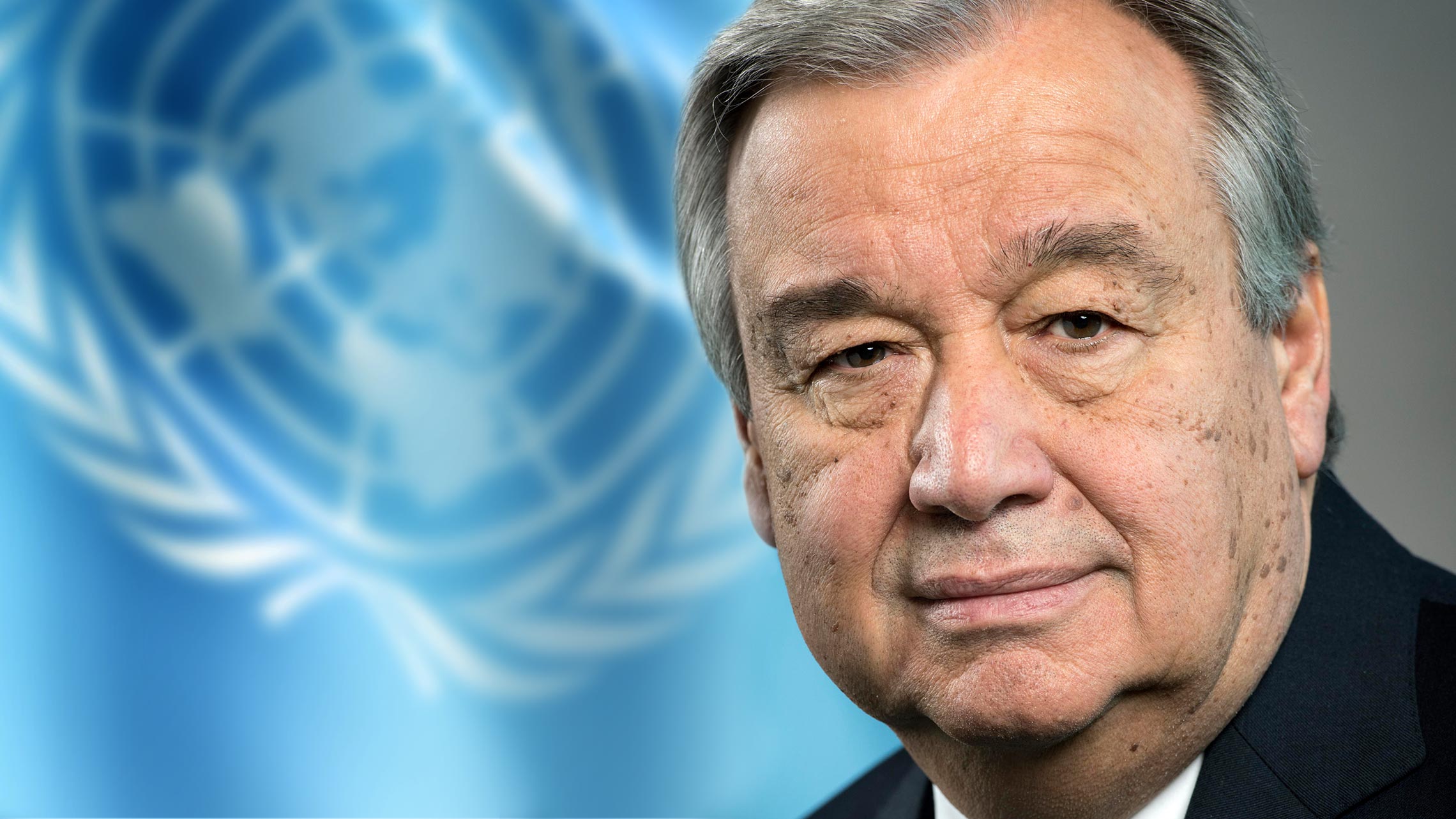
Mr. António Guterres, Secretary-General of the United Nations opened his speech, congratulating the WFP Executive Director and the entire WFP staff on the Nobel Peace Prize. The peace prize sends out an important message that food is peace and hunger an outrage. WFP richly deserved the award, and the countries that so generously supported it deserve enormous appreciation. The Secretary-General emphasized the need to focus on gender equality, noting that the planned 2021 Food Systems Summit would be an important opportunity to address the many challenges faced in the pandemic recovery. A more modern and inclusive approach to multilateralism—“network multilateralism”—is needed, one that is more transparent, flexible and accessible. Humanitarian approaches were designed to respond to the multidimensional aspects of the pandemic but must be balanced with longer term recovery, addressing fragilities in global development, including climate, food systems, livelihoods, and they must better serve women. The siloed approach no longer works. If multilateralism can break silos, become inclusive and have everyone work toward a common objective, it will have a key role to play in the needed global governance.
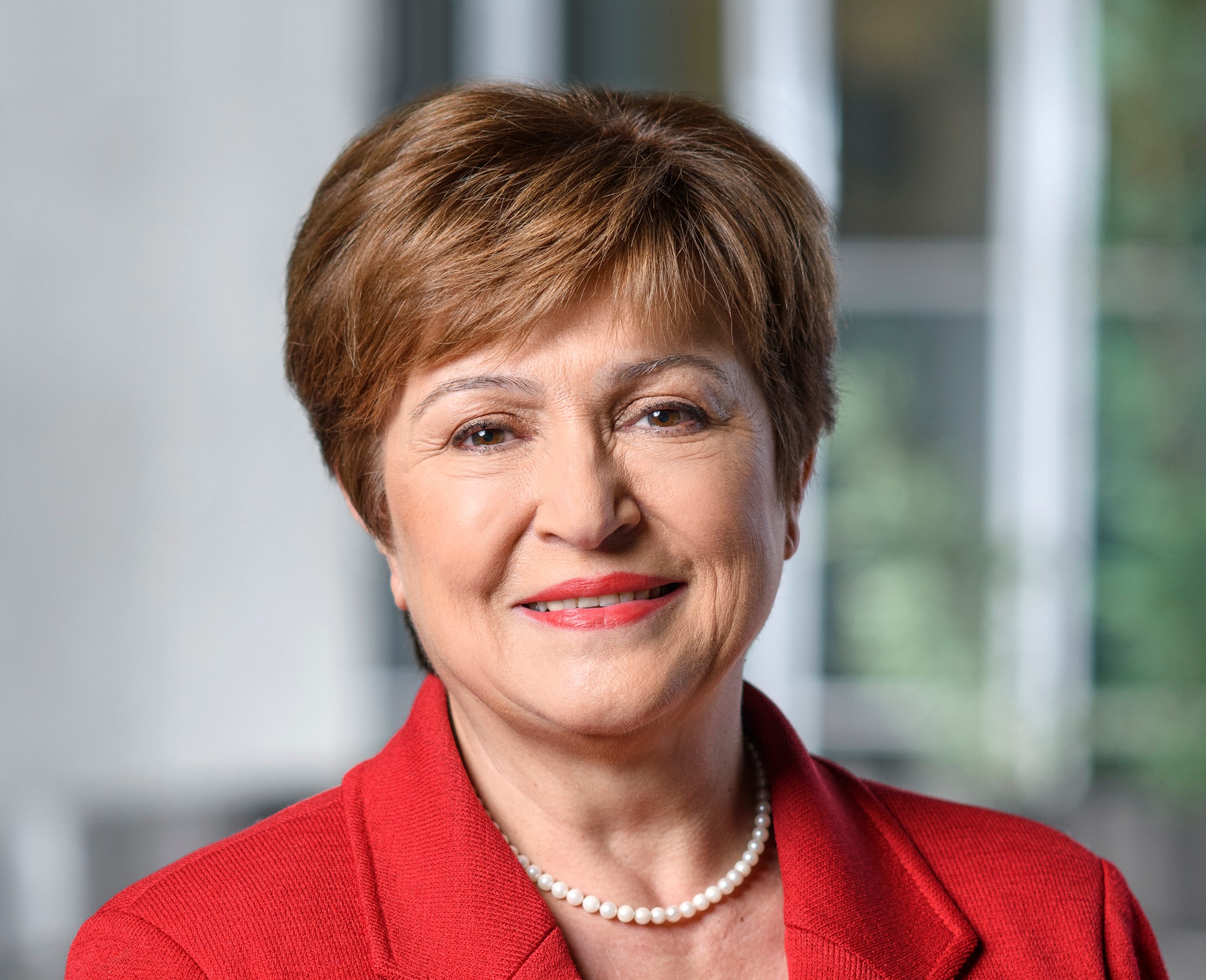
Ms. Kristalina Georgieva, stated that WFP, the IMF and the World Bank Group were created with the common objective of improving people’s lives and, in her view, the best way to collaborate is for each to bring its comparative strengths to achieving that objective. Outlining what the contribution of the IMF is in the partnership of multilateral organizations, Ms. Georgieva referred to three points of the IMF’s mandate: (i) keep a hand on the pulse of the world economy, analysing financial conditions and trends and providing advice on how best to use resources at country level; (ii) be the world’s first economic responder at the time of crisis; (iii) help prioritize spending, which is where the collaboration, including with WFP, is most visible when social safety nets are designed and priorities defined. 2021 is set to be a very difficult year and the IMF is focussed on providing fiscal space, particularly to low-income countries, to buffer and recover from the impact of CoVID-19. To achieve that, the IMF, with the World Bank, called for debt service suspension measures which have been embraced by the Group of Twenty. Debt service suspension will not be sufficient for all countries, however and the World Bank and IMF have also been making case-by-case arguments for debt restructuring.
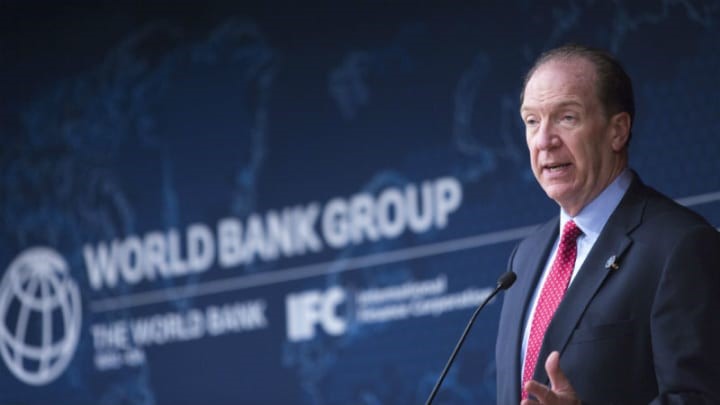
To help the world’s poorest countries cope with the fallout of the COVID-19 crisis until the middle of next year, the World Bank Group (WBG) together with IMF supported the Debt Service Suspension Initiative (DSSI) that offers a temporary suspension of government-to-government debt payments to 73 countries and is providing much-needed breathing space . In most cases, however, the moratorium postpones payments but does not reduce the ultimate debt burden. At the World Bank and IMF annual meetings in October 2020, the World Bank Development Committee asked the World Bank and the IMF to propose action to address low-income country unsustainable debt burdens an and the World Bank and IMF have also been making case-by-case arguments for debt restructuring, with an eye to avoiding the sort of protracted debt restructuring processes that delayed past recoveries and created cycles of unsustainable debt. The WBG estimates that, to date, the 43 countries that have signed up for DSSI have deferred just over USD 5 billion of debt. On-the-ground coordination is particularly important in settings of Fragility, Conflict, and Violence (FCV), where no single organization can meet the challenge alone, and the Bank is eager to work with others at country level. Addressing FCV is a strategic priority to end extreme poverty and promote shared prosperity, the WBG President stressed the importance of ensuring effective food systems.
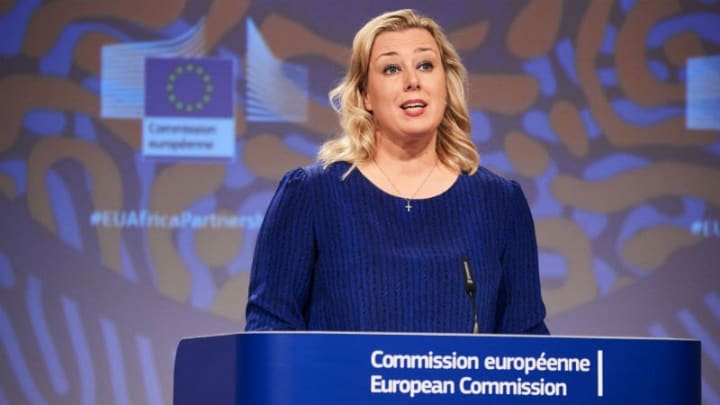
A top priority of the European Union is to reconcile people, planet and economy under the Green Deal for a low carbon and sustainable future that leaves no one behind, affirmed the European Union Commissioner for International Partnerships. In this regard, transformative initiatives related to food and nutrition security and sustainable agri-food system will be launched with a Team Europe approach to respond to the crisis, which to date has raised close to EUR 37 billion to help EU partner countries deal with the fallout of the pandemic. To continue working with multilateral actors for effective partnership and coordination, the EU highlighted upcoming multilateral events that are of particularly importance, like the UN Food Systems Summit and the Nutrition for Growth Summits next year.
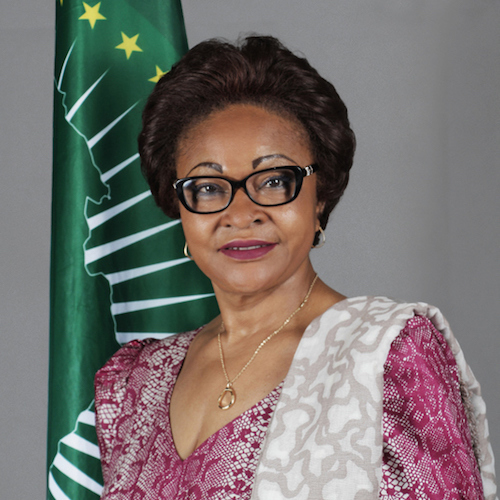
Commissioner Sacko addressed the question of how the international community can better support Africa. Building resilient economies will be key to Africa’s recovery from the current economic, social and humanitarian crisis, which, while directly caused by COVID-19, is being compounded by conflict, civil unrest, terrorism, climate change and locusts. Africa needs to strengthen its partnerships and work with all its development partners to achieve its development objectives; however, enhanced understanding of the local political and economic reality of African nations is a critical basis for any support to African Union Member States, and development partners are asked to step up financing for national priority initiatives through both existing programmes and new investments. The African Union Commission is calling for enhanced coordination and cooperation to avoid duplication and ensure the efficient use of available resources; the strengthening of national and local institutions, guided by the principle of subsidiarity for ownership and sustainability; and the strengthening of mutual accountability mechanisms. Africa’s growth is important for Africans and for the world, but a peaceful Africa requires a prosperous Africa, and vice-versa.
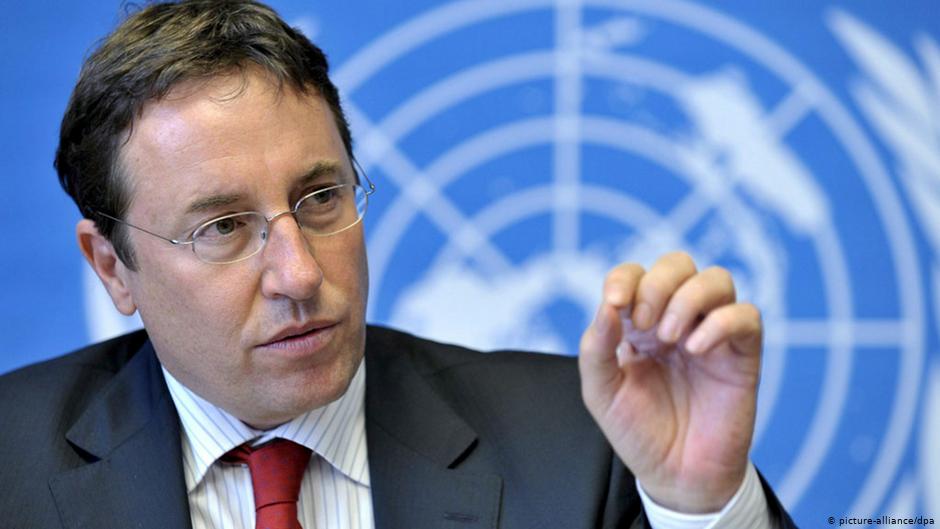
Mr. Steiner began his remarks by pointing out that humanitarian interventions addressed an absence of normality, the antithesis of which should be a normal development pathway. Part of the answer for a new form of collaboration and interaction within the United Nations family, including its partners like the African Union and the European Union, is the recognition that development cooperation has fundamentally changed: the world has been moving from an era of development aid to an era of development cooperation, with each entity playing a different role and humanitarian organizations stepping in when conflict or natural disaster disrupts normal delivery processes. We need smart integration and joint delivery including joint assessments, planning and joint financing and implementation. The United Nations System and its partners still need to look to a future in which development cooperation is not just a function of per capita gross domestic product but is embedded in an understanding of how societies arrive at consensus in the choices they make. It is important to remember that before COVID-19 struck, many societies were seeing political protests against inequality, sustainability, climate change and vulnerability. In such a setting, the tools established 30 or 40 years earlier are in large part anachronistic. There is a distinct role for humanitarians, and humanitarian principles, but it is time for a multilateralism “reset”.
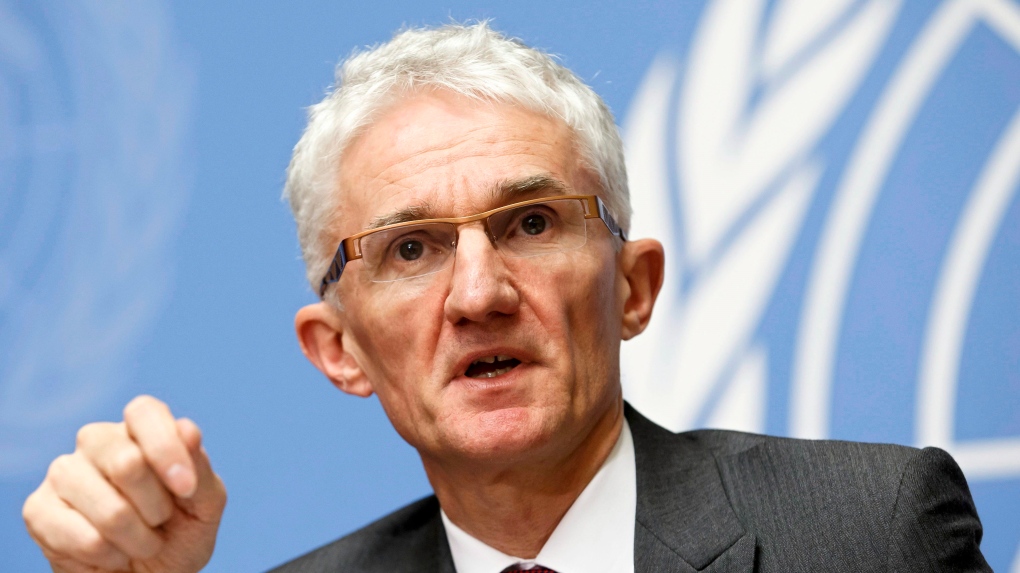
Mr. Lowcock sounded an alarm: the human species’ greatest achievement, which is to eradicate famine as a feature of the human experience, is at risk ‒ not because of a shortage of food, of which there is plenty, but because of climate change, conflict and the economic contraction arising from the COVID-19 pandemic. Immediate action is required on four fronts: first, shareholders of international financial institutions need to enable them to provide more, faster and more effective support to the most vulnerable countries; second, because some countries, even if relatively well-resourced, do not have the institutions or capabilities to reach the people in need of assistance, billions of dollars are needed for organizations like WFP and the Red Cross to operate in places where tragedies are occurring like in Yemen and South Sudan; third, because disease kills more people during famines than hunger does, investment is needed in basic health services and sanitation and for organizations like UNICEF, WHO and Médecins sans Frontières; and fourth, peace and stability need to be established, as recognized by the Secretary-General in his call for a global ceasefire.
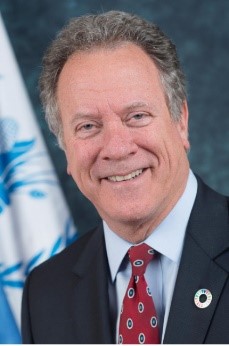
Mr. David Beasley, WFP Executive Director said that after 200 years of progress the world has slipped backward over the past five years. Given the accumulated wealth of nations and the right of every human on earth to food, there is no reason that hunger cannot be ended. There is thus an urgent need for the international community to collaborate more practically, realistically and strategically. He is confident that it will, and WFP is committed to doing its part.
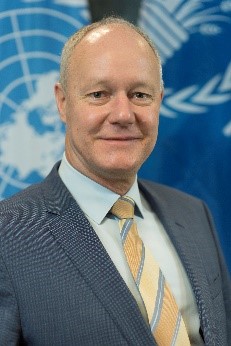
In concluding, Ambassador Ulrich Seidenberger, the President of WFP Executive Board summarized key take-aways from the high-level event: The COVID-19 pandemic is not only a health crisis but is also evolving into a socio-economic crisis. The international community needs to mobilize resources in and across all the different spheres and overcome siloed thinking quickly and prevent famines. Avoiding famines and hunger is a moral imperative. The costs are relatively trivial, and with the necessary political will ending hunger is possible. An additional USD 39 billion to USD 50 billion annually (in addition to the USD 12 billion ODA invested by the international
community annually so far for agriculture, food security and rural development) up to 2030 would end hunger for all people worldwide. With business as usual, acute hunger would be projected to affect more than 840 million people and could be exacerbated by COVID-19 to over 900 million by 2030. Looking towards the immense challenges looming in 2021 and beyond, caused by COVID-19 and secondary socio-economic effects as well as the threat of famine, these multiple challenges could only be solved if the different actors represented in the high-level event acted synergistically and better coordinated together. The challenges facing the world today require globally integrated responses to better use the resources mobilized to date. This can only be achieved through joined-up planning, financing, and implementation of major stakeholders like those participating in the High- Level Panel. A global ceasefire during COVID-19 is indispensable for humanitarian access and to create the minimum stability necessary for first recovery measures. It is imperative to step up financing for organizations who are the first responders and have the capacity to act in settings of Fragility, Conflict, and Violence (FCV) where the capacity does not exist.
Click here and watch the full high-level event.
